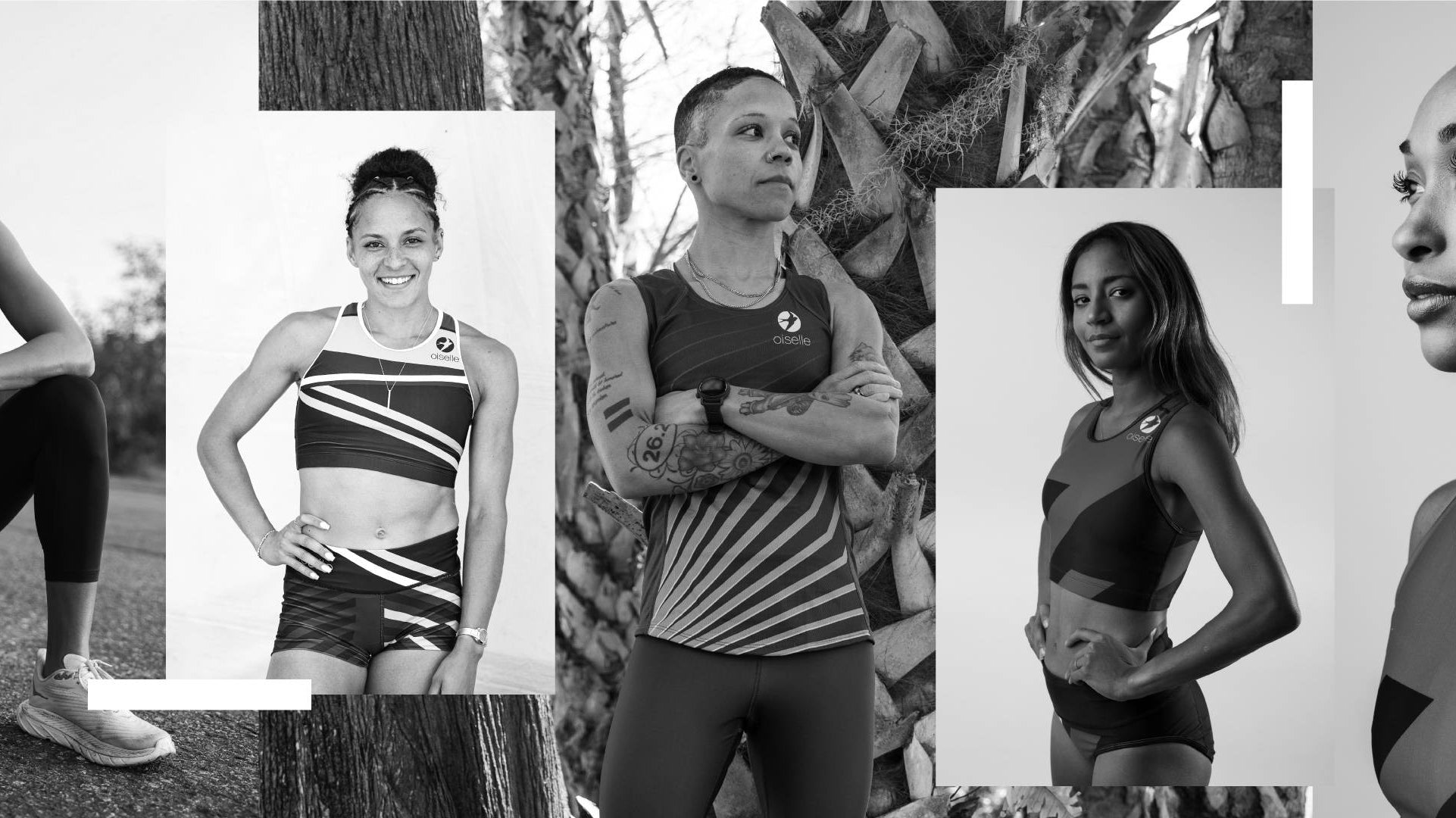A few weeks ago, we were thrilled to have Carolyn Su, the creator of the account Diverse We Run, on the blog. We couldn't think of a better fit for our Represent the Run campaign. Her and Courtney, long time Volée team member and leader, are back on the blog to share the full story behind Courtney’s feature.

I’m African American. I think that women of color often fail to see themselves in the running world, both in media (print and online) and at actual races. While there is a wide swath of diverse runners in my own city (Washington D.C.), when I travel for races, I’m often one of only a handful of runners of color.
The “positive,” I guess you could say, is that I usually get recognized by spectators, which can be fun. In longer races, spectators might recognize me multiple times throughout the course, and I’ll get continuous crowd-support! That being said, it can also feel discouraging as the “only lonely” at big races.
Running actually “runs” in my family - my dad is a former runner. When I was younger, I used to bike alongside him while he ran. He consistently ran the Army 10 Mile Race within an hour! I’m nowhere near that fast, but he was my first personal example of long distance running.
In high school, I ran track - mostly because I didn’t make the basketball team and the track team accepted everyone. I was a sprinter and a hurdler. Then, I took a long hiatus from running until law school. In my 3L year, I trained for my first half marathon with some girlfriends, aptly named “The Brown Girls Run Club.” After law school, I started to run more regularly, and in November 2013, I crossed the finish line of my first marathon.
My next big running goal is a sub-4 marathon, but I’m taking a break from the marathon in 2019. Long term, I’d like to qualify for Boston!

My biggest struggle as a runner is my mental game late in the game during marathons. Recently, I attended a running camp that incorporated 30-minutes of meeting with a “mental game coach,” and that was incredibly helpful. Meeting with Coach Dean helped me develop some new ideas and strategies on how to stay mentally sharp and focused during miles 18 + of a marathon!
I would never say that running is my therapy, but it does allow me a space to work through difficult moments. More than that, though, running has given me a huge community of other runners - many whom are now some of my very best friends!
Running has taught me that I CAN DO HARD THINGS: I can set big goals, follow through, and commit! It’s made me less afraid of declaring my goals, and it’s given me tangible ways to challenge myself outside of my profession.
Often when someone hears that I’m training for a marathon, the follow-up is usually, “oh, is this your first marathon?” My answer is always “nope, I’ve run ten.” I know that I don’t look like a stereotypical marathoner (starting with the fact that I’m an African-American woman), but I’m hoping that by continuing to show up, I’ll help change what is considered “typical!” I strive to be honest, positive and welcoming to all people. I believe in the power of encouraging women — particularly, women of color— and reinforcing the fact that THEY BELONG in this space, and frankly, in ANY space they desire to be in!





































































































































































Comments
I completely connect to your statement about the “typical” runner. Seldom do we get to hear or see the real people who run in publishing and that is what I now look for, connections to others. Thanks for this. I didn’t read it until I listen to the podcast: episode 251-Ali on the Run. Hope I see your singlet in a race someday. Let me know if you ever run the Middle East.